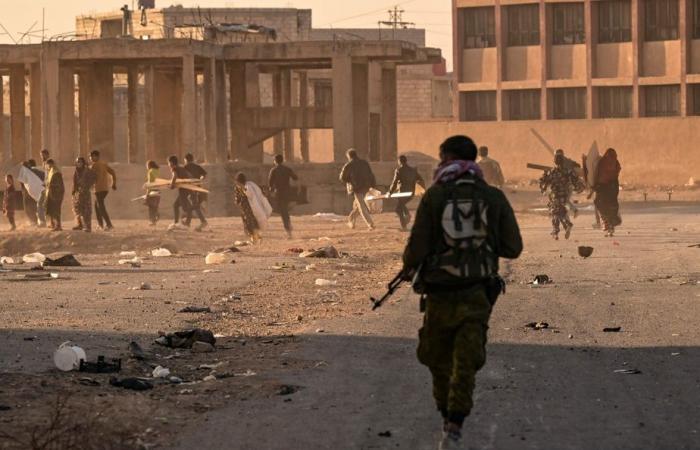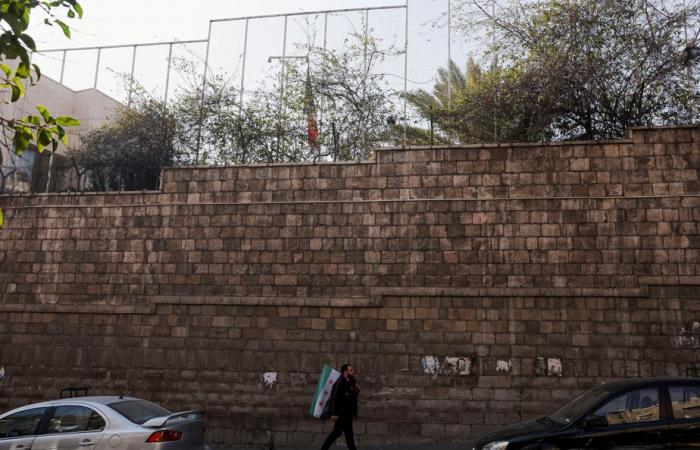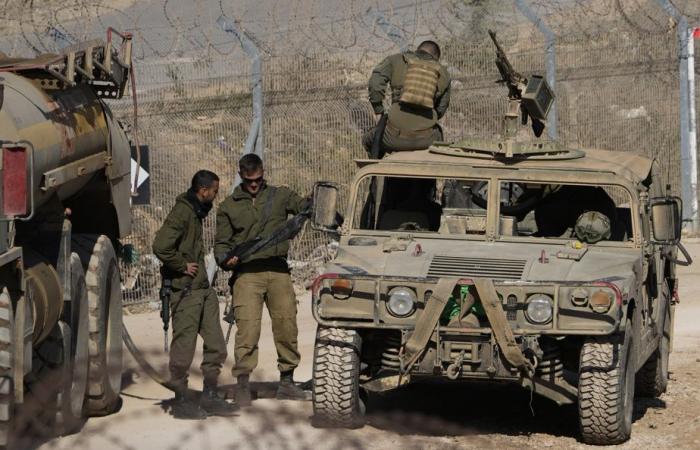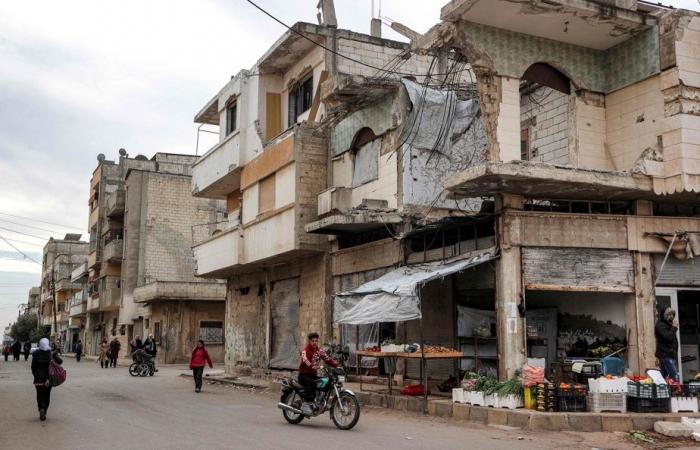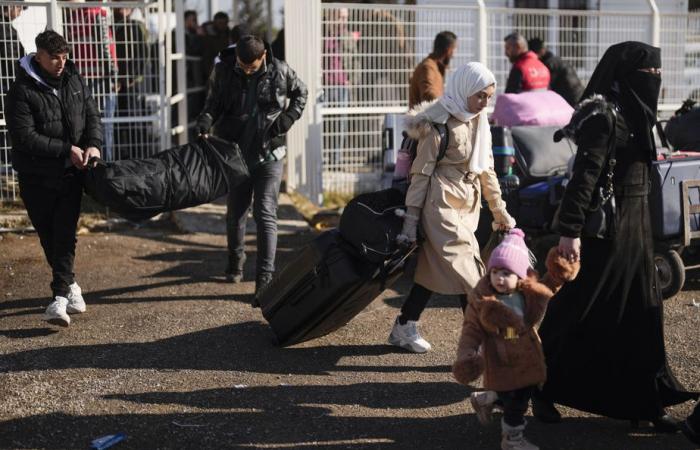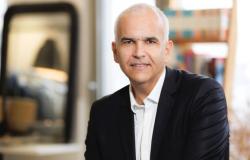(Damascus) The UN warned Tuesday that the conflict was “not yet over” in Syria, where the new authorities dominated by radical Islamists are trying to reassure their ability to pacify the country, fragmented and devastated by 13 years of civil war.
Posted at 6:38 a.m.
Updated at 12:37 p.m.
Etienne TORBEY, with Marisol RIFAI in Beirut
Agence France-Presse
While several foreign missions met the new leaders in Damascus, the UN special envoy for Syria, Geir Pedersen, spoke to the Security Council about the clashes in the north of the country between Syrian Kurdish forces and groups supported by Turkey, in the wake of the rebel offensive which ousted Bashar al-Assad from power on December 8.
A “five-day” ceasefire negotiated between these two parties under American auspices “has expired and I am seriously concerned by reports of a military escalation”, which “could be catastrophic”, he said. he warned.
Supporting the new Syrian power, Turkey believes that the Kurdish forces established in the northeast – supported by the United States against the jihadists of the Islamic State (IS) group – come from its sworn enemy, the Kurdistan Workers’ Party, Separatist PKK.
Although with suspicion, the West is seeking to establish links with the new power, aware of the risk of resurgence of ISIS, never completely eradicated in Syria, and of the challenge of reunifying the country.
France, whose flag was again raised over the embassy, closed since 2012, Germany and the United Kingdom sent envoys to Damascus.
PHOTO AMR ABDALLAH DALSH, REUTERS
The French flag was raised over the French embassy in Damascus, which has been closed for 12 years.
Syria’s new strongman, Abu Mohammad al-Jolani, has pledged to integrate into the army the rebel factions his radical Sunni group Hayat Tahrir al-Sham (HTS) spearheaded to overthrow, in 11 days, Assad’s power.
Their fighters will be “prepared to join the ranks of the Ministry of Defense,” said the head of HTS, who now calls himself by his real name, Ahmad al-Chareh, and receives foreign delegations in civilian clothes.
“Wolf in lamb’s clothing”
German diplomats held initial talks with him on Tuesday, according to the German Foreign Ministry.
“France is preparing to be alongside the Syrians” during the transition period, declared French envoy Jean-François Guillaume.
The President of the European Commission, Ursula von der Leyen, judged that the EU – which said it was “ready” to reopen its representation in Damascus – should “intensify” its relationship with HTS.
Washington has also established contacts with HTS, even if the United States continues, like other Western countries, to classify as terrorist this former Syrian branch of Al-Qaeda, which claims to have broken with jihadism.
Israel, for its part, displays its distrust of the new authorities of the neighboring country: its Prime Minister, Benjamin Netanyahu, held a security meeting in Syria on Tuesday, at the summit of Mount Hermon, on the borders of the part of the Golan occupied and annexed by Israel, where the Israeli army was deployed after December 8.
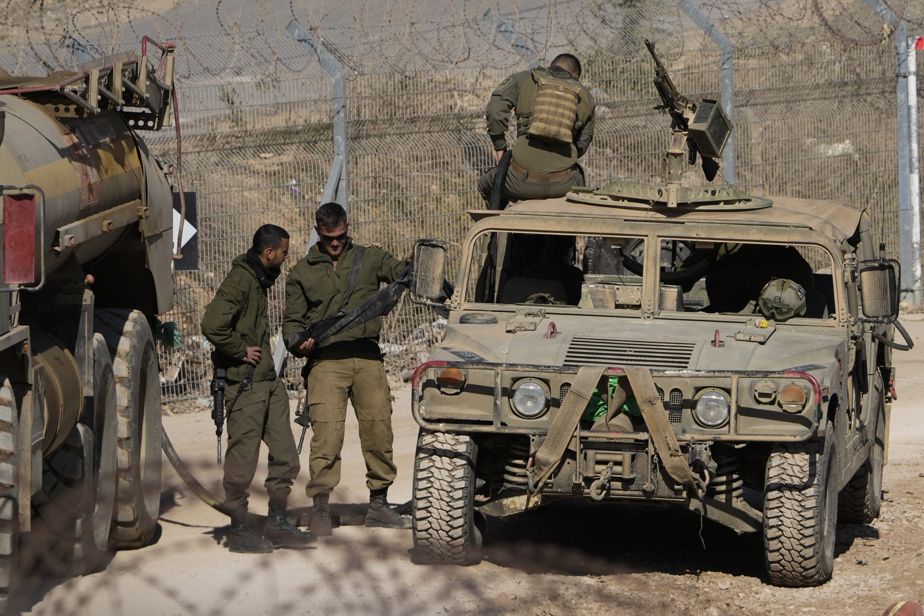
PHOTO MATIAS DELACROIX, ASSOCIATED PRESS
Israeli soldiers stand next to armored vehicles near the Alpha Line that separates the Israeli-controlled Golan Heights from Syria, December 17, 2024.
His Deputy Foreign Minister, Sharren Haskel, described the head of HTS as a “wolf in lamb’s clothing”. The Israeli army has heavily bombed Syrian military sites since December 8, to prevent their capture by the new authorities.
“Improving Life”
Across the country, residents are working to resume their lives, nearly 14 years after the start of the civil war, triggered in 2011 by the repression of pro-democracy demonstrations, and which left half a million dead and pushed exile six million Syrians.
In the old souks of Damascus, where most shops have reopened, traders painted their facades white to erase the colors of the old Syrian flag with two stars.
Most prices of basic necessities have fallen with the temporary lifting of taxes.
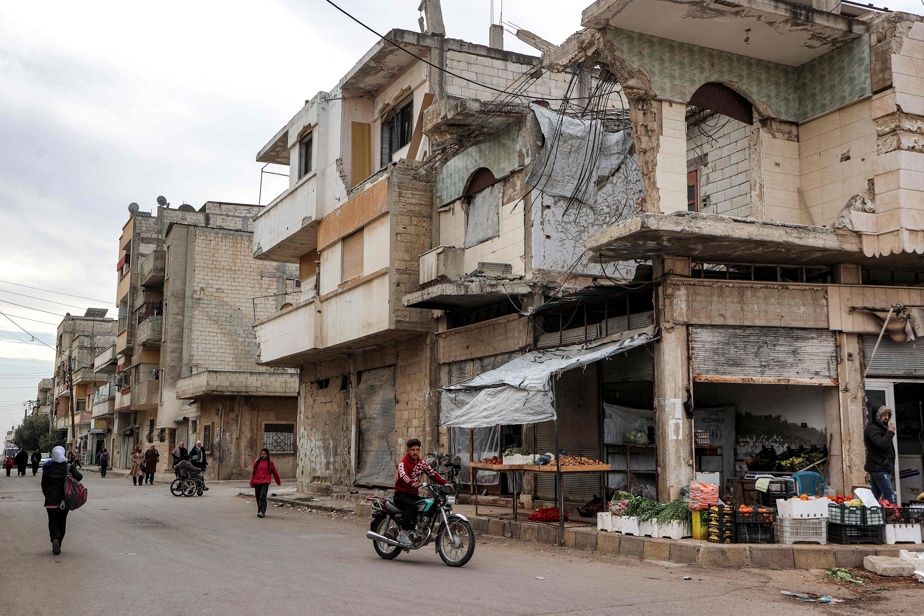
PHOTO AAREF WATAD, AGENCE FRANCE-PRESSE ARCHIVES
Syrians move along a street in Damascus, December 16, 2024.
“Everything happened at once: the fall of the regime, the fall in prices, the improvement of life. We hope it’s not temporary,” says Abou Imad, who transformed his car into a small grocery store in a square in the capital.
But the UN estimates that seven out of ten Syrians need international aid and on Tuesday “advised” against a “large-scale” return of refugees until the situation there is stabilized.
“No basic service”
In a country with a Sunni majority, but multi-ethnic and multi-faith, the new authorities are also being scrutinized for the treatment that will be reserved for minorities.
The director of the UN migration agency (IOM), Amy Pope, told AFP on Tuesday that members of religious minorities had fled the country for fear of “potential threats”.
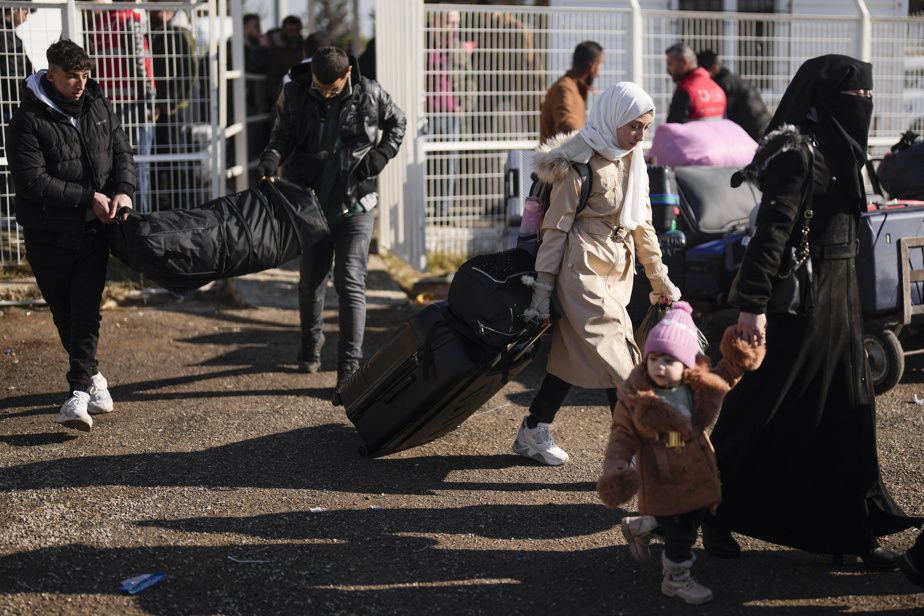
PHOTO KHALIL HAMRA, ASSOCIATED PRESS
Syrians carry their belongings as they walk to cross into Syria from Turkey, December 17, 2024.
“Syria must remain united, and there must be a social contract between the State and all faiths to guarantee social justice,” the head of HTS assured Monday.
Before a delegation of British diplomats, he also “underlined the need to lift all sanctions imposed on Syria in order to allow the return of refugees”.
Some have begun to return to their ruined towns, such as in Maaret al-Noomane, in the west, where the fighting that broke out in 2012 has left a landscape of devastation.
Kifah Jaafer, local head of the “Directorate of Liberated Areas”, recalls that “the city lacks everything”, noting that there are “no schools, none of the basic services. […] It will be necessary […] lots of help.”

